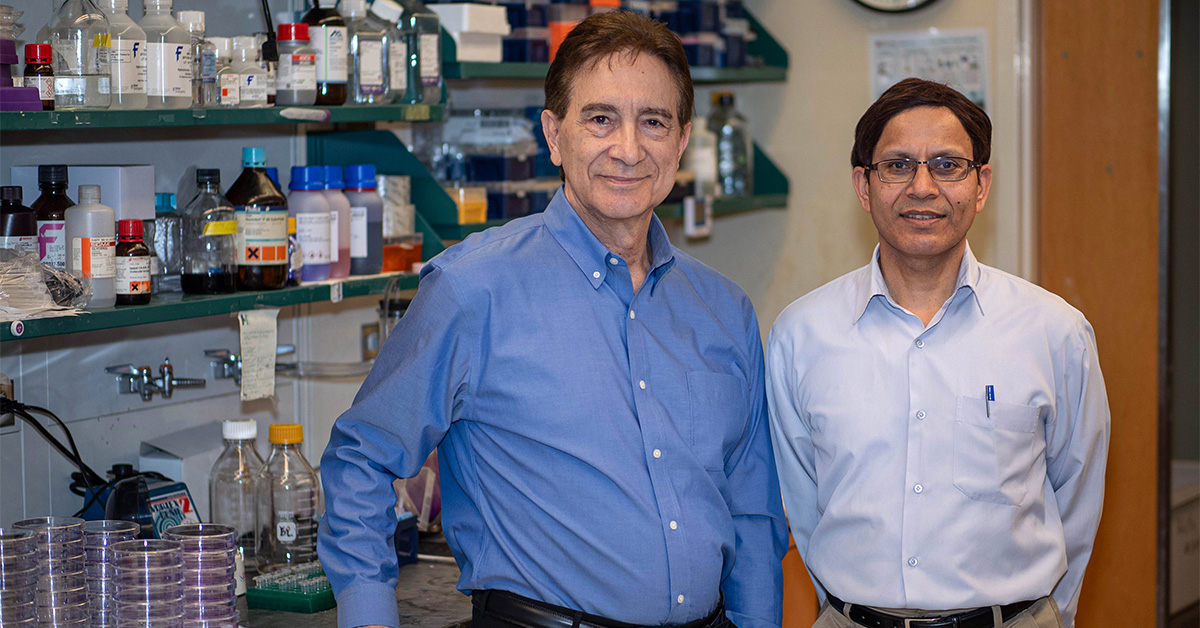
PHILADELPHIA (April 8, 2024) — In a study presented today at the American Association for Cancer Research (AACR) Annual Meeting 2024, researchers at Fox Chase Cancer Center showed that in mice with a BAP1 germline mutation, even minimal exposure to chrysotile asbestos significantly increases susceptibility to the development of malignant mesothelioma. The study is being posted simultaneously online in Cancer Research Communications, a journal of the AACR.
BAP1 mutations are inherited conditions that increase the likelihood of developing certain tumors that occur commonly in the abdomen, skin, eyes, kidneys, and tissue lining the chest. Individuals with a mutation in the BAP1 gene are notably at risk of developing malignant mesothelioma, which occurs when cancer cells form in the mesothelium, a thin layer of protective tissue covering most internal organs.
“There is a specific type of asbestos called chrysotile, and it’s often debated whether it can or can’t cause mesothelioma or lung cancer. This new study is particularly relevant given that chrysotile currently makes up approximately 95% of asbestos used commercially. While some say it causes these diseases, others say if it does, it is only because it is contaminated with another type of asbestos called crocidolite,” said Joseph Testa, PhD, FACMG, the Carol & Kenneth E. Weg Chair in Human Genetics and Chief of Genomic Medicine at Fox Chase.
“With that in mind, we wanted to test low levels of chrysotile and crocidolite and see whether they could cause mesothelioma in either normal mice or mice that have an inherited mutation of the BAP1 gene,” said Testa, who co-authored the study with Yuwaraj Kadariya, MD, PhD, an Assistant Research Professor in Testa’s lab.
Over a four-year period, the researchers used mice with a genetic mutation in the BAP1 gene, as well as mice with a normal genome, to examine whether those with the BAP1 mutation developed mesothelioma more often. Low levels of asbestos were injected into the abdomens of mice to determine its effects. The researchers found that no matter the level of asbestos exposure, the mice with a BAP1 mutation developed mesothelioma more often than those mice without the mutation.
“Drawing parallels to human disease, our experimental findings indicate that BAP1 mutation carriers are highly susceptible to the carcinogenic effects of even minimal amounts of asbestos, including both crocidolite and chrysotile,” said Testa. “Because low levels of either form of asbestos caused mesotheliomas in some genetically normal mice,” Kadariya added, “the findings also have relevance to the general public, especially in developing countries where asbestos is unregulated and used without proper precautions.”
In addition, the researchers’ findings show that inflammation triggered by exposure to asbestos, especially chrysotile, results in an immunosuppressive tumor microenvironment in BAP1-mutant mice that creates conditions that allow malignant mesothelioma cells to evade immune surveillance. This suggests that immunotherapies targeting these pathways in BAP1 mutation carriers who develop malignant mesothelioma might be an effective treatment option in the future.
The study was presented at the AACR Annual Meeting 2024, which is being held April 5-10 in San Diego. The full study, “Low Exposures to Amphibole or Serpentine Asbestos in Germline Bap1-Mutant Mice Induce Mesothelioma Characterized by an Immunosuppressive Tumor Microenvironment,” is available online.